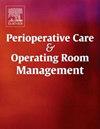影响围手术期护士保留和离职决策的因素:定性分析
IF 1
Q2 Nursing
Perioperative Care and Operating Room Management
Pub Date : 2025-06-04
DOI:10.1016/j.pcorm.2025.100503
引用次数: 0
摘要
目的探讨围手术期护士离职、留院、实际离职、勉强留院的影响因素。围手术期护理部门对外科护理和患者安全至关重要,但其独特的人员配置动态仍未得到充分探讨。在解决该部门人员配备挑战的研究方面存在明显差距。虽然许多研究都集中在离职或离职的意向上,但很少有人研究围手术期护理中更广泛的人员配备问题。方法本定性分析借鉴了澳大利亚全国围手术期护士在线调查的开放式回答。雪球抽样是通过相关专业协会进行的。数据分析采用归纳和演绎两种主题分析方法,研究遵循定性研究报告标准(SRQR)。结果本研究发现,工作场所因素是围手术期护士离职意向的主要驱动因素,而不是个人或家庭原因。工作场所的一系列问题——包括工作量过大、人员短缺、不灵活的工作时间表、糟糕的同事关系和缺乏专业发展机会——都是导致人员流失的原因,但功能失调的护理管理是最重要的因素。影响护士留下来的因素包括牢固的同事关系,围手术期护理工作和病人护理的价值,以及灵活的时间表。尽管出于经济保障、大学债券和对换工作的恐惧,一些参与者的离职意愿很高,但他们仍然留在了学校。结论本定性分析确定了护理管理者、工作环境、工作量、护理短缺、日程安排和专业成长是影响围手术期护士离职决策的关键因素。它强调了对不正常的领导风格及其在留住工作人员方面的有限努力的关切。解决这些问题并促进保留因素,如围手术期护理和患者护理的价值,以及积极的大学关系,对于改善保留策略至关重要。对组织的启示研究强调了人力资源部门参与护理管理人员的培训和绩效监测的必要性。本文章由计算机程序翻译,如有差异,请以英文原文为准。
Factors influencing perioperative nurses' retention and turnover decisions: A qualitative analysis
Aim
This study explored the factors influencing perioperative nurses' decisions to leave, stay, actual departure, or remain reluctantly.
Background
The perioperative nursing sector is crucial to surgical care and patient safety, yet its unique staffing dynamics remain underexplored. There is a noticeable gap in research addressing the staffing challenges within this sector. While many studies focus on either intention to leave or turnover, few have examined the broader staffing issues in perioperative nursing.
Methods
This qualitative analysis draws on open-ended responses from a nationwide online survey of perioperative nurses across Australia. Snowball sampling was conducted through relevant specialty associations. Data were analysed using both inductive and deductive thematic analysis, and the study adhered to the Standards for Reporting Qualitative Research (SRQR).
Results
This study found that workplace factors, rather than personal or family reasons, were the primary drivers of turnover intention and departure among perioperative nurses. A range of workplace issues—including excessive workload, staffing shortages, inflexible working schedules, poor collegial relationships, and lack of professional development opportunities—contributed to turnover intentions, but dysfunctional nursing management was the most influential factor. Factors influencing nurses to stay included strong collegial relationships, value of perioperative nursing work and patient care, and access to flexible schedules. Some participants remained despite high turnover intentions due to financial security, collegial bonds, and fear of job change.
Conclusions
This qualitative analysis identified nursing managers, workplace environment, workload, nursing shortages, scheduling, and professional growth as key factors influencing turnover decisions among perioperative nurses. It highlighted concerns about dysfunctional leadership styles and their limited efforts in retaining staff. Addressing these issues and promoting retention factors like the value of perioperative nursing and patient care, and positive collegial relationships are crucial for improving retention strategies.
Implication for the organisation
The study highlights the need for the human resource department’s involvement in the training and performance monitoring of nursing managers.
求助全文
通过发布文献求助,成功后即可免费获取论文全文。
去求助
来源期刊

Perioperative Care and Operating Room Management
Nursing-Medical and Surgical Nursing
CiteScore
1.30
自引率
0.00%
发文量
52
审稿时长
56 days
期刊介绍:
The objective of this new online journal is to serve as a multidisciplinary, peer-reviewed source of information related to the administrative, economic, operational, safety, and quality aspects of the ambulatory and in-patient operating room and interventional procedural processes. The journal will provide high-quality information and research findings on operational and system-based approaches to ensure safe, coordinated, and high-value periprocedural care. With the current focus on value in health care it is essential that there is a venue for researchers to publish articles on quality improvement process initiatives, process flow modeling, information management, efficient design, cost improvement, use of novel technologies, and management.
 求助内容:
求助内容: 应助结果提醒方式:
应助结果提醒方式:


